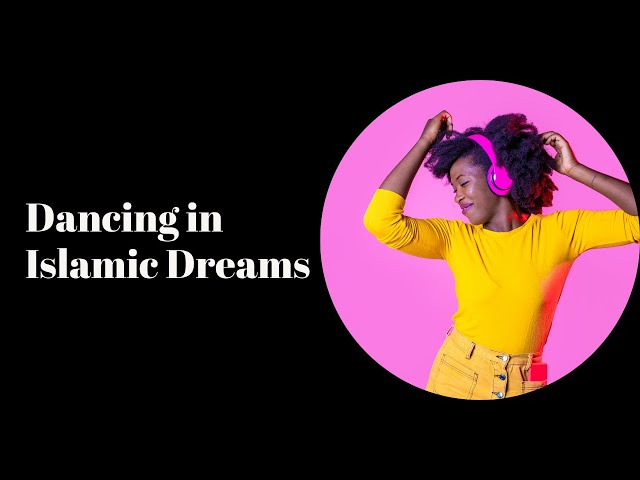
The Star of David in Islam
358 views · Oct 8, 2024 horoscopochino.co
The Star of David in Islam The Star of David, universally recognized as a symbol of Judaism, may seem out of place within the Islamic tradition. Yet, beneath the surface, this six-pointed star reveals a surprising connection between these two ancient religions. Could the Star of David in Islam carry a deeper significance, one that transcends religious boundaries?. Though the Star of David is not a primary symbol in Islam, its geometric beauty and spiritual essence have found their way into Islamic art and culture. Known in Islamic tradition as the "Seal of Solomon," the six-pointed star is believed to represent the power of King Solomon (Suleiman in Arabic), who, in Islamic belief, was a prophet with command over the natural and spiritual worlds. The symbol was used as a talisman, invoking protection and divine wisdom, similar to its role in Jewish mysticism. Throughout Islamic history, the six-pointed star has appeared in architecture, textiles, and sacred manuscripts. In places like Turkey and Morocco, Islamic artisans used the star's perfect symmetry to adorn mosques and palaces, believing that its shape reflected the harmony of the universe. The star's interlocking triangles, representing the balance between heaven and earth, the spiritual and the material, resonated deeply with Islamic values of unity and the oneness of all creation. Yet, beyond its artistic presence, the Star of David also speaks to the shared spiritual heritage between Islam and Judaism. Both religions honor many of the same prophets, including King David and Solomon, and embrace the idea of divine guidance and protection. In a world often divided by religious differences, the Star of David serves as a reminder of the common threads that unite these two faiths, drawing us toward a higher understanding of interconnectedness. As we reflect on its presence in both Islamic and Jewish traditions, we are called to look beyond surface labels and explore the deeper meanings of the symbols around us. What does this ancient star signify for you in your spiritual journey? #StarOfDavidInIslam #SealOfSolomon #IslamicSpiritualSymbols

The Mystical Significance of Blue in Islamic Dream Interpret...
855 views · Aug 26, 2024 horoscopochino.co
The Mystical Significance of Blue in Islamic Dream Interpretation Have you ever awoken from a dream, haunted by the image of a serene blue sky or an endless azure ocean? Have you pondered what such a vision might signify in the tapestry of your spiritual journey? In Islamic dream interpretation, the color blue carries profound and multifaceted meanings that can guide the dreamer toward deeper understanding and spiritual growth. Blue, in the Islamic tradition, is more than just a color. It is a symbol of depth, tranquility, and divine connection. When a person dreams of the color blue, it is often seen as a sign of spiritual clarity and inner peace. Blue skies or waters in a dream might reflect the dreamer’s state of mind—calm, serene, and in harmony with their surroundings. This color is frequently associated with wisdom and knowledge, suggesting that the dreamer is on a path of enlightenment and understanding. The Prophet Muhammad (peace be upon him) emphasized the importance of dreams as a means of divine communication. In this context, the appearance of blue in a dream could be interpreted as a message from the divine, encouraging the dreamer to seek truth and wisdom. The soothing nature of the color blue may also represent divine mercy and protection, a reassurance that the dreamer is under the watchful care of Allah. However, the interpretation of blue in dreams is not one-dimensional. The specific shade of blue and the context within which it appears can alter its meaning. A deep, dark blue might symbolize the vastness of the spiritual unknown, urging the dreamer to explore the mysteries of their faith with humility and reverence. On the other hand, a lighter blue, akin to the color of the sky at dawn, might suggest new beginnings or a fresh perspective on one’s spiritual path. In some instances, blue can also be associated with a warning or a call to introspection. If the blue in the dream is murky or unclear, it may indicate confusion or emotional turbulence that needs to be addressed. It serves as a gentle reminder that the dreamer must seek clarity and balance in their spiritual life, perhaps through prayer, meditation, or studying the Quran. Dreams in Islam are not merely random images but are often viewed as reflections of the soul's current state or messages from the divine. Therefore, understanding the significance of blue in your dreams can offer invaluable insights into your spiritual journey. Are your dreams of blue skies a sign of the peace you have found, or are they a call to explore deeper spiritual truths? What wisdom could the color blue be revealing to you? #IslamicDreamInterpretation #MeaningOfBlueInIslam #SpiritualGuidanceIslam

The Unfolding of the End: Eschatology in Islam and Its Spiri...
688 views · Aug 26, 2024 horoscopochino.co
The Unfolding of the End: Eschatology in Islam and Its Spiritual Significance Have you ever wondered what awaits us beyond the veil of life, in that mysterious realm where time ceases to exist? In Islam, the answers to these profound questions are found within the rich and intricate teachings of eschatology—the study of the end times. This doctrine, deeply embedded in Islamic tradition, not only shapes the worldview of millions of believers but also invites us to reflect on the eternal journey of the soul. The Islamic perspective on eschatology is both a warning and a guide. It speaks to the final day when all souls will be resurrected and judged, where the righteous will be rewarded with eternal bliss, and the wicked will face the consequences of their deeds. This belief is not just a distant theological concept; it is a call to live a life of righteousness, mindful of the inevitable day of reckoning. At the heart of Islamic eschatology lies the concept of Qiyamah, the Day of Resurrection. It is described as a day of unimaginable events when the natural order will collapse—the mountains will crumble, the seas will boil, and the dead will rise from their graves. The Qur'an repeatedly emphasizes the certainty of this day, urging believers to prepare by leading a life of faith and good deeds. Another critical aspect of Islamic eschatology is the Mahdi, the awaited savior, who is believed to appear before the Day of Judgment. The Mahdi, together with Jesus (known as Isa in Islam), will restore justice and peace, defeating the forces of evil. This eschatological hope gives Muslims a sense of purpose and resilience, as they await the fulfillment of these divine promises. Yet, eschatology in Islam is not merely about the end; it is about the journey toward that end. It is about cultivating a life of virtue, where every action is weighed, and every intention scrutinized. The teachings encourage believers to strive for moral excellence, knowing that their deeds will echo in eternity. In a world often consumed by material pursuits, Islamic eschatology serves as a profound reminder of the impermanence of this life and the enduring significance of the soul’s journey. It challenges us to question our priorities, to seek what truly matters, and to live in a manner that honors the divine order. So, as you contemplate the teachings of Islamic eschatology, what steps will you take to align your life with these eternal truths? How will you prepare for the ultimate journey of the soul? Share your thoughts and reflections below. #IslamicEschatology #EndTimesInIslam #SpiritualJourneyIslam

The Significance and Interpretation of Dreaming About Fish i...
3K views · Aug 12, 2024 horoscopochino.co
The Significance and Interpretation of Dreaming About Fish in Islam Dreams hold a significant place in Islamic tradition, often seen as a medium through which messages are conveyed to the faithful. Among the various symbols that appear in dreams, fish stand out for their rich symbolism and profound meanings. In Islamic dream interpretation, known as "ta'bir al-ru'ya," dreaming about fish can carry diverse and impactful messages depending on the context of the dream. In general, fish in dreams symbolize abundance, prosperity, and good fortune. This symbolism is derived from the natural characteristics of fish, which are often associated with water, the source of life. In many cultures, including Islamic tradition, water is a symbol of purity, fertility, and endless sustenance. Thus, seeing fish in dreams can be interpreted as an indication of upcoming blessings and positive changes. One common interpretation of dreaming about fish in Islam is related to financial prosperity. If a person dreams of catching fish, it is often seen as a sign that they will soon experience financial gain or success in their business endeavors. The size and number of fish can also play a crucial role in the interpretation. Large fish might indicate significant wealth or a major opportunity, while a multitude of smaller fish could suggest steady and cumulative gains. Additionally, fish can represent knowledge and spiritual enlightenment. In some Islamic traditions, fish are considered symbols of wisdom and understanding. This interpretation is particularly relevant if the dream involves fish swimming in clear water, signifying clarity of thought and insight. Dreaming of fish in this context might suggest that the dreamer is on the verge of discovering important truths or gaining deeper knowledge about a particular aspect of their life. Conversely, if the fish in the dream are dead or swimming in polluted water, it can signify missed opportunities, loss, or a warning about potential difficulties. This negative interpretation emphasizes the importance of the dreamer's emotional and spiritual state. A dream featuring dead fish might indicate that the dreamer needs to pay attention to their inner world and address any issues that might be hindering their personal growth or success. The context in which the fish appear is also crucial in Islamic dream interpretation. For instance, dreaming of eating fish can have different meanings depending on the circumstances. Eating fresh fish is generally considered a positive sign, symbolizing health, nourishment, and the fulfillment of desires. On the other hand, eating spoiled or rotten fish could be interpreted as a warning against deceit or impending trouble. In Islamic dream interpretation, the gender and social status of the dreamer can also influence the meaning of the dream. For example, a pregnant woman dreaming of fish might be seen as a sign of an easy childbirth and a healthy baby. For a single person, dreaming of fish might indicate the arrival of a suitable partner or the beginning of a prosperous relationship. Ultimately, the interpretation of dreams about fish in Islam is multifaceted and deeply personal. It requires considering the specific details of the dream and the dreamer's life circumstances. Consulting with a knowledgeable person in Islamic dream interpretation, such as a religious scholar, can provide further insight and clarity. For those interested in exploring more about the fascinating world of Islamic dream interpretation, we invite you to watch more videos in the associated playlist or check out the recommended video in the description of the video you just watched. Also watch: Spiritual Meaning of Numbers in Dreams: Unveiling Divine Messages https://youtu.be/JTD1ZO4LBZc

Interprétation des Rêves en Islam: Rêver de Pleurer-Video...
325K views · Aug 12, 2024 horoscopochino.co
Interprétation des Rêves en Islam: Rêver de Pleurer Dans l'univers fascinant de l'interprétation des rêves, chaque symbole, chaque émotion ressentie, porte une signification profonde et particulière. Parmi les rêves courants, celui de pleurer revêt une importance singulière, surtout dans le contexte de l'Islam. Pleurer en rêve peut paraître troublant, mais il est essentiel de comprendre que dans la tradition islamique, les rêves sont souvent perçus comme des messages divins ou des réflexions de notre état intérieur. Le Coran et les Hadiths accordent une place importante aux rêves, et de nombreux érudits musulmans ont consacré leurs vies à leur étude et interprétation. Pleurer dans un rêve en Islam est généralement vu sous deux angles principaux : le soulagement et l'angoisse. Le premier, le pleur de soulagement, peut symboliser la fin des difficultés, une libération émotionnelle ou spirituelle. Selon l'érudit Ibn Sirin, pleurer de soulagement dans un rêve est souvent un signe de miséricorde divine, une indication que Dieu répond à vos prières et vous offre un nouveau départ. C'est un symbole positif, indiquant que le rêveur est sur le chemin de la rédemption et de la paix intérieure.

Are Islamic Marriages Arranged? Here’s the Truth
835 views · Jul 8, 2024 horoscopochino.co
Are Islamic Marriages Arranged? Here’s the Truth Islamic marriages, often misunderstood in the West, are commonly perceived as arranged. This perception is not entirely accurate and oversimplifies the diverse practices within Muslim communities worldwide. The truth about Islamic marriages is nuanced and varies greatly depending on cultural, regional, and individual differences. In Islam, marriage is a sacred contract between a man and a woman. It is intended to be a partnership based on mutual respect, love, and understanding. While arranged marriages are indeed practiced in many Muslim-majority countries, they are not a requirement of the Islamic faith. Instead, the practice of arranged marriages is often rooted in cultural traditions rather than religious doctrine. In an arranged marriage, the families of the bride and groom play a significant role in selecting a suitable partner. This process can range from parents introducing potential matches to their children, to more formal arrangements where families negotiate the marriage terms. The level of involvement from the individuals being married can vary. In some cases, they may have little to no say, while in others, their consent and preferences are paramount. It is essential to distinguish between arranged marriages and forced marriages. Islam strictly prohibits forced marriages. The consent of both parties is a fundamental requirement in an Islamic marriage. The Quran emphasizes the importance of mutual agreement and the free will of both individuals. Forcing someone into marriage against their will is not only a violation of Islamic principles but also a violation of human rights. In many Muslim communities, especially in the West, the practice of arranged marriages has evolved. Today, it is not uncommon for young Muslims to meet potential spouses through family introductions, community events, or even online platforms. These modern approaches often blend traditional values with contemporary methods, allowing individuals more autonomy in choosing their partners while still respecting cultural and familial traditions. Moreover, many Muslim couples today engage in what is known as "semi-arranged" marriages. In this scenario, families may introduce potential matches, but the individuals involved have the opportunity to get to know each other and make their own decisions. This approach strikes a balance between respecting family involvement and ensuring personal choice and compatibility. It is also important to recognize the diversity within the Muslim world. Practices regarding marriage can differ significantly from one region to another. For example, the marriage customs in South Asia can be quite different from those in the Middle East or North Africa. These differences highlight the importance of not generalizing or stereotyping Islamic marriage practices based on limited information. In conclusion, while arranged marriages are a common practice in many Muslim cultures, they are not an inherent requirement of Islam. The religion emphasizes the importance of mutual consent and respect in marriage. The ways in which Muslims approach marriage are diverse and evolving, reflecting a blend of tradition and modernity. Understanding these nuances helps to dispel misconceptions and fosters a more accurate and respectful view of Islamic marital practices. For more insightful information on this topic, we invite you to watch the associated playlist or the recommended video in the description of the video you just watched. Also watch: Three Days of a Muslim Wedding: Traditions and Expectations https://youtu.be/hG_ghFu9nOg

Temporary Marriage in Islam: Permissible or Not?
38 views · Jul 8, 2024 horoscopochino.co
Temporary Marriage in Islam: Permissible or Not? Temporary marriage, also known as "Mut'ah" in Arabic, is a practice that has generated significant debate within the Muslim community. Mut'ah allows a man and a woman to contract a marriage for a specified period, with terms agreed upon beforehand. This form of marriage is particularly contentious due to differing interpretations and acceptability among various Islamic sects. To understand whether a Muslim can still have a temporary marriage, it is essential to explore the historical context, doctrinal differences, and contemporary perspectives on this practice. Historically, temporary marriage dates back to the early days of Islam. During the time of the Prophet Muhammad, Mut'ah was practiced under specific circumstances, primarily during times of war when men were away from their families for extended periods. The primary purpose was to provide a lawful means for intimate relations and companionship, avoiding illicit behavior. However, this practice was not intended as a permanent fixture but rather a temporary solution for specific situations. The primary point of contention regarding Mut'ah arises between Sunni and Shia Muslims. Shia Muslims, particularly those of the Twelver sect, believe that temporary marriage remains permissible. They argue that it was sanctioned by the Prophet Muhammad and was only later prohibited by the second caliph, Umar ibn al-Khattab, for reasons that were more political than religious. Shia scholars maintain that since the Prophet allowed it, the practice retains its legitimacy. On the other hand, Sunni Muslims generally regard temporary marriage as forbidden (haram). They cite the prohibition issued by Caliph Umar as a legitimate and binding decision that aligns with the broader objectives of Sharia law, which emphasize the sanctity and permanence of marriage. Sunni scholars argue that marriage in Islam is intended to be a lifelong commitment, fostering stable family units and moral societal structures. Therefore, they view Mut'ah as incompatible with these objectives and consider it abrogated. In contemporary times, the debate over Mut'ah continues to evoke strong opinions. In Shia-majority countries like Iran, temporary marriage is legally recognized and practiced under specific guidelines. Iranian law permits Mut'ah, provided that both parties consent and the marriage is registered. This practice is sometimes seen as a way to address social issues such as the need for companionship without the commitment of a permanent marriage. Conversely, in Sunni-majority countries, Mut'ah is not legally recognized and is generally viewed with disfavor. Sunni scholars and legal systems uphold the prohibition established by Caliph Umar, reinforcing the notion that marriage should be a lifelong bond. For Muslims living in non-Muslim countries, the issue of temporary marriage can be even more complex. Legal recognition of Mut'ah depends on the country’s legal system, and it may not be acknowledged as a valid form of marriage. Additionally, cultural perceptions and community norms play a significant role in whether individuals consider engaging in temporary marriage. In conclusion, whether a Muslim can still have a temporary marriage depends largely on their sectarian affiliation and the legal and cultural context in which they live. For Shia Muslims, particularly Twelvers, Mut'ah remains a permissible and sometimes practiced form of marriage. For Sunni Muslims, however, temporary marriage is generally considered forbidden and incompatible with Islamic principles of marriage. As with many aspects of religious practice, individual beliefs and interpretations will significantly influence one's stance on this issue. Also watch: Three Days of a Muslim Wedding: Traditions and Expectations https://youtu.be/hG_ghFu9nOg

Understanding the Timing and Conditions for Marriage in Isla...
336 views · Jul 2, 2024 horoscopochino.co
Understanding the Timing and Conditions for Marriage in Islam Marriage in Islam is regarded as a sacred and significant institution, reflecting the divine intention for companionship, procreation, and mutual support. For those interested in Muslim culture, it is essential to understand when and under what conditions Muslims can get married according to Islamic teachings. The primary source of guidance for Muslims is the Quran, complemented by the Hadith, which are the sayings and actions of the Prophet Muhammad. These texts provide detailed instructions on various aspects of life, including marriage. In Islam, the appropriate age for marriage is closely linked to physical and mental maturity. The concept of maturity, known as "baligh," signifies the onset of puberty. Islamic scholars generally agree that both parties should have reached puberty to be considered ready for marriage. However, this is just one aspect of the readiness for marriage, as emotional and psychological maturity are equally important. The legal age for marriage varies across different countries and cultures within the Muslim world. Many Muslim-majority countries have established legal minimum ages for marriage that align with international standards and local customs. For example, in countries like Egypt and Morocco, the legal minimum age for marriage is 18 for both men and women. These laws aim to ensure that individuals are sufficiently mature to enter into the responsibilities of married life. Islamic law also emphasizes the importance of mutual consent. Both the bride and groom must willingly agree to the marriage without any form of coercion. This principle of consent is critical and aligns with the broader Islamic value of justice and fairness. The marriage contract, known as the "nikah," must be entered into freely by both parties, and it is considered invalid if forced. In addition to age and consent, financial stability is another consideration in Islamic teachings. The groom is expected to provide a "mahr," a mandatory gift to the bride, which serves as a symbol of his commitment and ability to support his future family. This financial prerequisite underscores the importance of readiness and responsibility in marriage. Another crucial aspect of the timing for marriage in Islam is the consideration of familial and social responsibilities. The well-being of both families and the community plays a role in determining the appropriate time for marriage. It is common for families to be involved in the decision-making process, ensuring that the marriage is beneficial and harmonious. Islamic teachings also recognize the importance of compatibility between the prospective spouses. Factors such as shared values, religious commitment, and mutual respect are vital for a successful marriage. The Prophet Muhammad emphasized the importance of choosing a spouse based on their piety and character, as these qualities contribute to a strong and lasting relationship. While the guidelines provided by Islam are clear, there is flexibility to accommodate different cultural practices and legal requirements. This adaptability allows Muslim communities worldwide to integrate Islamic principles with local customs and laws, ensuring that the institution of marriage remains relevant and respectful of diverse traditions. Understanding when Muslims can get married involves considering a combination of physical maturity, mutual consent, financial readiness, and compatibility. These factors ensure that marriage is entered into responsibly, reflecting the sacred and holistic approach to family life in Islam. For more insights into Muslim culture and practices, be sure tol watch the related videos in the associated playlist or the recommended video in the description of the video you just watched. Also watch: Planning a Muslim Wedding: Key Considerations and Traditions https://youtu.be/y_aazxHG62U

What Happens If You Dream About Wedding in Islam
2K views · Jun 25, 2024 horoscopochino.co
Understanding the Significance of Dreaming About a Wedding in Islam In the realm of Islamic dream interpretation, dreaming about a wedding holds profound significance. Dreams are viewed as a channel through which the subconscious mind communicates with the individual, offering insights and guidance. In Islam, dreams are often divided into three categories: those that are true and inspired by Allah, those that are influenced by one’s own thoughts and emotions, and those that are from Shaytan (the devil) to disturb and mislead. When interpreting a dream about a wedding, it is essential to consider the various elements and context within the dream. Weddings in Islamic culture symbolize unions, new beginnings, joy, and sometimes significant life changes. However, the meaning can vary greatly depending on the specific circumstances of the dream and the individual's current life situation. If one dreams of their own wedding, it could indicate an upcoming change or new phase in their life. This might not necessarily be a literal marriage but could symbolize a new job, a move to a new place, or a significant personal transformation. The emotions felt during the dream are critical. Feelings of happiness and excitement suggest positive changes and blessings, whereas feelings of anxiety or sadness might indicate apprehension about future events or unresolved issues in one's life. Dreaming of someone else’s wedding can reflect the dreamer’s attitudes towards relationships and commitments. It might also indicate a desire for unity or a wish to see harmony in one's social or familial circles. If the person getting married is a close friend or family member, it might symbolize the dreamer’s hopes and wishes for that person or concern about their future. In Islamic dream interpretation, seeing a wedding where there is music and dance is often considered a warning. It can symbolize potential difficulties or challenges that might arise. This interpretation aligns with the Islamic view that excessive celebration and distraction from spiritual obligations can lead to adverse outcomes. Conversely, a wedding that is simple and conducted in a modest and religious manner is often seen as a positive omen, indicating blessings, stability, and a harmonious life. Another aspect to consider is the attire and setting of the wedding. For instance, a bride wearing a beautiful, modest dress in a serene environment suggests purity, blessings, and spiritual fulfillment. In contrast, a chaotic wedding setting or inappropriate attire might hint at inner turmoil or forthcoming challenges that need to be addressed. It's also significant to note who appears in the dream. The presence of certain individuals can add layers of meaning. For instance, dreaming of a deceased relative at a wedding might symbolize the presence of their blessings and protection, or it could indicate unresolved feelings towards that person. Islamic dream interpretation also takes into account the state of the dreamer’s faith and spirituality. A person who is strong in their faith might receive more straightforward and positive dream messages, while someone struggling with their faith might have dreams that reflect their inner conflicts and call for spiritual realignment. In summary, dreaming about a wedding in Islam is rich with symbolism and can offer valuable insights into one's life. It often signals new beginnings, changes, and the need for reflection on one's personal and spiritual state. Interpreting these dreams requires careful consideration of the context, emotions, and specific details within the dream. For those interested in further exploring the depths of dream interpretation in Islam, watching more videos in the associated playlist or the recommended video in the description of the video you just watched can provide deeper understanding and knowledge. See more: Interpreting the Dream of Having a Baby Girl in Islam https://youtu.be/2uB8EX4lutM #islam #dreaminterpretations

The Forbidden Aspects of Islamic Marriage
3K views · Jun 18, 2024 horoscopochino.co
Forbidden Aspects in Islamic Marriage: Laws and Traditions Islamic marriage, known as "Nikah," is a solemn and sacred social contract between a man and a woman. Rooted deeply in the principles of Islamic jurisprudence and tradition, marriage in Islam is not just a union of two individuals but a binding commitment to support each other in a faithful and moral life. However, like any legal and religious framework, Islamic marriage comes with specific prohibitions aimed at maintaining the sanctity and purity of the union. Understanding these forbidden aspects is crucial for anyone interested in Muslim culture and the principles governing Islamic marital laws. One of the most fundamental prohibitions in Islamic marriage is the prohibition against marrying close blood relatives. According to Islamic law, marrying a direct descendant, an ascendant, a sibling, or a sibling's child is strictly forbidden. This prohibition is derived from the Quranic verses and the Hadiths, which aim to prevent genetic disorders and maintain family structure. For instance, the Quran states, "Prohibited to you (for marriage) are: your mothers, your daughters, your sisters, your father's sisters, your mother's sisters, your brother's daughters, your sister's daughters…" (Quran 4:23). Another critical aspect of forbidden marriage in Islam is the prohibition against marrying non-Muslims. While a Muslim man is allowed to marry a Christian or Jewish woman, a Muslim woman is strictly forbidden from marrying a non-Muslim man. This rule is intended to preserve the religious identity and ensure that children born from the union are raised in the Islamic faith. The rationale behind this prohibition is rooted in the patriarchal nature of Islamic society, where the religion of the husband typically influences the family's faith. Temporary marriages, known as "Mut'ah," are also prohibited in Sunni Islam. This type of marriage, which allows a couple to marry for a predetermined period, is considered invalid by Sunni scholars and is seen as a form of legalized prostitution. However, it is essential to note that Mut'ah marriages are permitted in Shia Islam, which reflects the diversity within the Muslim community regarding certain practices and interpretations of Islamic law. Polygamy, although permitted in Islam, comes with strict regulations and conditions. A man is allowed to have up to four wives, but he must treat them with equal justice and fairness. The Quran states, "…then marry those that please you of [other] women, two or three or four. But if you fear that you will not be just, then [marry only] one…" (Quran 4:3). Failure to treat all wives equally is considered a serious violation, making unjust treatment a forbidden aspect within a polygamous marriage. Divorce in Islam, while permitted, is highly discouraged and should be the last resort after all reconciliation efforts have failed. The process of divorce, known as "Talaq," has its own set of rules and regulations. For instance, a husband must pronounce Talaq three times, with waiting periods in between, to give both parties time to reconcile. Impulsive or angry declarations of divorce are considered invalid, and the divorce must be carried out with due process and mutual respect. Another forbidden practice in Islamic marriage is the concept of "Nikah Halala." This practice involves a divorced woman marrying another man, consummating the marriage, and then getting divorced again to be able to remarry her first husband. While some sects within Islam may practice it, the majority of Islamic scholars condemn it as exploitative and contrary to the spirit of Islamic law. Forced marriages are unequivocally forbidden in Islam. The consent of both parties is a prerequisite for a valid Islamic marriage. The Prophet Muhammad (PBUH) emphasized the importance of mutual consent and discouraged any form of coercion. He stated, "A previously married woman should not be married until her consent has been asked, and a virgin should not be married until her consent has been sought" (Sahih Bukhari). This highlights the importance of personal choice and willingness in entering the marital contract. In conclusion, the forbidden aspects of Islamic marriage laws and traditions reflect the importance of protecting family integrity, individual rights, and religious values. These prohibitions are designed to ensure that marriage, as an institution, remains sacred and that the rights of all individuals involved are respected. For those interested in exploring more about Islamic marriage and its rich cultural context, watching related videos can provide further insights and understanding. Also watch: What Color Do Muslim Brides Wear: Exploring Traditional Attire in Muslim Weddings https://youtu.be/VCUpRiyJ_B8

Can You Do Istikhara for Marriage? Islamic Law Explained
356 views · Jun 18, 2024 horoscopochino.co
Can You Do Istikhara for Marriage? Islamic Law Explained Istikhara, an Arabic term meaning "seeking goodness," is a prayer performed by Muslims when faced with a decision where they seek Allah's guidance. It is particularly significant when making major life choices, such as marriage. Understanding the practice of Istikhara, especially in the context of marriage, requires an exploration of its origins, significance, and the principles of Islamic law that govern it. Istikhara finds its roots in the teachings of Prophet Muhammad (peace be upon him). He encouraged his followers to seek divine guidance through Istikhara when uncertain about important decisions. This prayer is a way to ask Allah to help choose the best course of action. The Prophet said, "If any of you intends to undertake a matter, he should offer a two-rak’ah prayer other than the obligatory prayers and then say: ‘O Allah, I seek Your guidance [in making a choice] by virtue of Your knowledge, and I seek ability by virtue of Your power, and I ask You of Your great bounty. You have power; I have none. And You know; I know not. You are the Knower of hidden things.’" Marriage is a significant milestone in a Muslim’s life, often involving substantial contemplation and sometimes confusion. In this context, Istikhara serves as a spiritual tool to navigate the complexities of choosing a spouse. The process involves performing two units of voluntary prayer, followed by the specific supplication for guidance. It is important to approach Istikhara with a clear and open mind, ready to accept Allah's will. Islamic law, or Sharia, outlines the permissibility and procedure for Istikhara. According to Islamic scholars, there are no restrictions on performing Istikhara for marriage. It is a recommended practice and not mandatory, meaning it is highly encouraged but not obligatory. The purpose is to seek Allah’s help in making the best decision, ensuring that the choice aligns with divine wisdom and leads to goodness. Istikhara for marriage is not about receiving a direct answer or a miraculous sign. Instead, it is about gaining clarity and peace of mind. After performing Istikhara, a person might feel a sense of tranquility regarding their decision, or they might experience some indications in their daily life that guide them towards or away from the marriage. These indications are subtle and can manifest as a feeling of ease or discomfort, rather than explicit dreams or visions. Islamic tradition emphasizes the importance of taking practical steps in conjunction with Istikhara. This includes seeking advice from knowledgeable and trustworthy individuals, considering the compatibility of the prospective spouse, and reflecting on the Islamic principles of marriage. Istikhara complements these efforts by involving a spiritual dimension in the decision-making process. There are some misconceptions about Istikhara, such as the belief that it should be performed only once. In reality, there is no limit to how many times one can perform Istikhara. If a person remains uncertain, they may repeat the prayer until they find clarity. Additionally, some believe that a negative outcome after Istikhara means one should abandon the decision altogether. However, the purpose of Istikhara is to seek guidance and clarity, not necessarily to provide an unequivocal yes or no. In contemporary Muslim communities, Istikhara remains a vital practice. It bridges the gap between personal choice and divine will, offering a balanced approach to decision-making. The practice underscores the importance of aligning one's choices with faith, ensuring that significant life decisions are made with both rational consideration and spiritual insight. Understanding Istikhara within the framework of Islamic law enhances its significance. It is a testament to the holistic nature of Islamic teachings, which integrate spiritual practices with everyday life decisions. For those contemplating marriage, Istikhara serves as a reminder to seek Allah’s guidance, ensuring that their choices lead to a fulfilling and harmonious life. For more insightful content on Muslim practices and culture, be sure to watch the recommended videos in the description of this video. Also watch: Understanding the Significance of the Muslim Mangni Ceremony https://youtu.be/-f9-jpX9HB4

Understanding the Meaning of Dancing in Islamic Dreams
2K views · Jun 16, 2024 horoscopochino.co
Understanding the Meaning of Dancing in Islamic Dreams Dream interpretation holds a significant place in Islamic tradition, offering insight into the subconscious mind and divine guidance. Among the many symbols encountered in dreams, dancing is a particularly intriguing and multifaceted one. This text explores the various interpretations of dancing in Islamic dream interpretation, considering the cultural, spiritual, and psychological dimensions associated with this symbol. In Islamic dream interpretation, dancing can have both positive and negative connotations, depending on the context and details of the dream. The significance of dancing in a dream is often linked to the dreamer's emotional state, life circumstances, and spiritual condition. Islamic scholars and dream interpreters, such as Ibn Sirin, have provided various perspectives on this symbol. When interpreting a dream about dancing, one must consider the type of dance, the setting, and the participants involved. Generally, dancing in a dream can symbolize joy, celebration, and social harmony. It may indicate that the dreamer is experiencing or will experience a period of happiness and fulfillment in their waking life. This positive interpretation is often associated with seeing oneself dancing at a wedding or a festive gathering, where the dance represents communal joy and togetherness. However, dancing in a dream can also have negative implications. If the dancing appears chaotic or takes place in an inappropriate setting, it might reflect inner turmoil or moral deviation. For instance, seeing oneself dancing in a manner that is socially or religiously unacceptable could signify a loss of control or a deviation from Islamic principles. Such a dream may serve as a warning to the dreamer to reassess their actions and seek spiritual guidance. The presence of music in a dancing dream adds another layer of interpretation. In Islamic tradition, the permissibility of music is a debated topic, with opinions ranging from complete prohibition to acceptance under certain conditions. Therefore, if music accompanies the dancing in a dream, it is essential to consider the type of music and its effect on the dreamer. Pleasant and harmonious music might enhance the positive aspects of the dream, while discordant or inappropriate music could amplify the negative connotations. Gender and age also play a crucial role in interpreting dancing dreams. For example, a young girl dancing in a dream might symbolize innocence, joy, and new beginnings, while an older person dancing could represent wisdom and life experience. The dream's context, such as the dreamer's gender and cultural background, should also be taken into account to provide a comprehensive interpretation. In some cases, dancing in a dream can symbolize a spiritual journey or an expression of religious devotion. Sufi traditions within Islam, known for their mystical approach to spirituality, often incorporate dance as a form of worship and a means to achieve spiritual ecstasy. Dreaming of Sufi whirling or other forms of spiritual dance might indicate the dreamer's desire for a deeper connection with the divine or an ongoing spiritual quest. Additionally, the psychological aspect of dancing dreams should not be overlooked. From a psychological perspective, dancing in a dream can reflect the dreamer's need for self-expression, creativity, and emotional release. It might indicate a desire to break free from societal constraints or personal inhibitions. Analyzing the dream from both a spiritual and psychological standpoint can provide a more holistic understanding of its meaning. In conclusion, the interpretation of dancing in Islamic dreams is a complex and nuanced process that requires careful consideration of various factors. Whether symbolizing joy, warning against moral deviation, or representing a spiritual journey, dancing in a dream offers valuable insights into the dreamer's inner world and spiritual state. By exploring these interpretations, dreamers can gain a deeper understanding of their subconscious mind and the divine messages conveyed through their dreams. For those interested in learning more about Islamic dream interpretation and other related topics, we invite you to watch more videos in the associated playlist or check out the recommended video in the description of the video you just watched. Also watch: Unmarried Girl Pregnant in Islam Dream Meaning: Insights and Interpretations https://youtu.be/Xf0t39xp8mc

Rêver de poisson signification interprétation en islam
369K views · Jun 14, 2024 horoscopochino.co
Rêver de poisson signification interprétation en islam Rêver de poisson est un rêve riche en symboles et significations, surtout dans le contexte de l'interprétation des rêves en Islam. Les poissons, en tant que créatures aquatiques, sont souvent associés à des éléments de mystère, de profondeur et de richesse. Ils peuvent symboliser des aspects variés de la vie spirituelle et matérielle du rêveur. Ce texte explorera les différentes significations de ce rêve en se basant sur les enseignements islamiques et les traditions d'interprétation des rêves. Dans l'Islam, les rêves sont considérés comme une forme de communication divine, et chaque élément du rêve peut avoir une signification particulière. Rêver de poisson, par exemple, peut être interprété de plusieurs manières selon le contexte du rêve et la situation personnelle du rêveur. En général, les poissons sont souvent associés à la prospérité, à l'abondance et à la bénédiction. Voir un poisson dans un rêve peut indiquer que le rêveur va recevoir des bienfaits, des gains matériels ou spirituels. Si le rêveur voit des poissons nageant librement dans l'eau, cela peut symboliser la liberté et la fluidité dans sa vie. Ce type de rêve peut suggérer que le rêveur est en phase avec son environnement et que les opportunités affluent vers lui sans obstacle. En revanche, si les poissons sont enfermés ou pris au piège, cela peut indiquer des contraintes ou des obstacles dans la vie du rêveur, qu'ils soient d'ordre professionnel, personnel ou spirituel. La taille et le nombre de poissons vus dans le rêve ont également leur importance. Rêver de gros poissons peut indiquer de grandes opportunités ou des gains considérables à venir. Par contre, de petits poissons peuvent symboliser des préoccupations mineures ou des gains modestes. Si le rêveur voit une grande quantité de poissons, cela peut être interprété comme un signe de grande richesse et de prospérité. Dans certains cas, la couleur des poissons peut également offrir des indices supplémentaires sur la signification du rêve. Par exemple, des poissons dorés ou argentés peuvent symboliser la richesse matérielle, tandis que des poissons de couleur plus sombre peuvent indiquer des aspects plus cachés ou mystérieux de la vie du rêveur. Une autre interprétation islamique courante concerne le fait de pêcher des poissons. Si le rêveur se voit en train de pêcher et de capturer des poissons, cela peut symboliser des efforts fructueux et la réalisation d'objectifs. Cependant, si la pêche échoue ou si les poissons s'échappent, cela peut être un avertissement concernant des efforts infructueux ou des opportunités manquées. Il est également important de considérer l'état des poissons dans le rêve. Des poissons frais et vivants sont généralement un bon présage, indiquant des bénédictions et des succès imminents. En revanche, des poissons morts ou pourris peuvent être interprétés comme des signes d'alerte, indiquant des pertes ou des déceptions à venir. En résumé, rêver de poisson en Islam peut revêtir des significations variées, souvent positives, mais dépendant largement du contexte et des détails spécifiques du rêve. Les poissons symbolisent principalement l'abondance, la prospérité et les opportunités, mais peuvent aussi représenter des défis et des obstacles selon les circonstances du rêve. Pour une interprétation précise, il est recommandé de prendre en compte tous les éléments du rêve et de consulter des sources fiables d'interprétation des rêves islamiques. Pour découvrir plus d'interprétations fascinantes des rêves et approfondir vos connaissances, nous vous invitons à regarder plus de vidéos dans la playlist associée ou le vidéo recommandé dans la description de la vidéo que vous venez de voir. #2024 #rêves #poisson #poissons #significationdesrêves #signification #islam

Unmarried Girl Pregnant in Islam Dream Meaning: Insights and...
262 views · Jun 14, 2024 horoscopochino.co
Unmarried Girl Pregnant in Islam Dream Meaning: Insights and Interpretations Dreams have always held a significant place in Islamic tradition, often considered as a form of communication from the divine. Among the myriad of dreams one might encounter, the image of an unmarried girl being pregnant carries a unique set of interpretations and connotations within Islamic dream interpretation. In Islamic culture, dreams are often viewed through the lens of religious and moral values. When interpreting a dream where an unmarried girl is pregnant, it is essential to consider the dream's context, the dreamer's personal life, and the symbolic meanings associated with pregnancy and marital status in Islam. Pregnancy in dreams generally symbolizes growth, development, and the birth of new ideas or projects. It can signify that the dreamer is nurturing something within themselves that is yet to be revealed. This could be a new phase in life, a creative project, or personal development. However, the added element of the girl being unmarried introduces a layer of complexity, as it touches upon social and moral norms in Islamic culture. In many Islamic societies, marriage is highly valued, and pregnancy outside of wedlock is often viewed negatively. Therefore, dreaming of an unmarried girl being pregnant can evoke feelings of shame, fear, or anxiety. This dream might reflect the dreamer's internal struggles with societal expectations and personal values. It can indicate a fear of judgment or a sense of guilt about something in the dreamer's waking life. This interpretation aligns with the broader understanding that dreams often mirror our subconscious mind, reflecting our deepest fears and anxieties. Alternatively, this dream could also symbolize a period of transformation and new beginnings. Despite the social stigma associated with premarital pregnancy, the dream might suggest that the dreamer is about to embark on a significant and transformative journey. This could be a positive change, such as a new job, a new relationship, or personal growth. The dream might be encouraging the dreamer to embrace this change despite societal pressures and to focus on the positive aspects of this new phase. In some cases, dreaming of an unmarried girl being pregnant might indicate hidden potential or talents. The pregnancy could symbolize something valuable that is developing within the dreamer, which they might not yet be fully aware of. This could be a latent skill, a new opportunity, or a personal quality that is about to come to fruition. It is also important to consider the specific details of the dream. For example, the emotions experienced during the dream can provide further insight into its meaning. If the dreamer feels joy and anticipation, it might suggest positive changes and new opportunities. On the other hand, feelings of fear and shame might indicate anxiety about societal judgment and personal dilemmas. In Islamic dream interpretation, the role of intention (niyyah) is crucial. The dreamer's intentions and actions in their waking life can influence the meaning of their dreams. Therefore, reflecting on one's intentions and striving for sincerity and righteousness in daily life can help in understanding and interpreting dreams more accurately. Dreams involving an unmarried girl being pregnant in Islam require careful consideration of the dreamer's personal circumstances and the cultural and religious context. While these dreams can evoke a range of emotions, they often carry important messages about personal growth, societal pressures, and hidden potential. Dream interpretation is a deeply personal and subjective practice. While Islamic teachings provide a framework for understanding dreams, individual experiences and emotions play a significant role in determining their meanings. Engaging in self-reflection and seeking guidance from knowledgeable individuals can help in uncovering the deeper significance of such dreams. If you found this interpretation insightful, you might enjoy exploring more videos on dream meanings and interpretations in our associated playlist or the recommended video in the description of the video you just watched. Also watch: Newborn Baby Islamic Dream Meaning: An In Depth Interpretation https://youtu.be/tZ2gRwdU7og